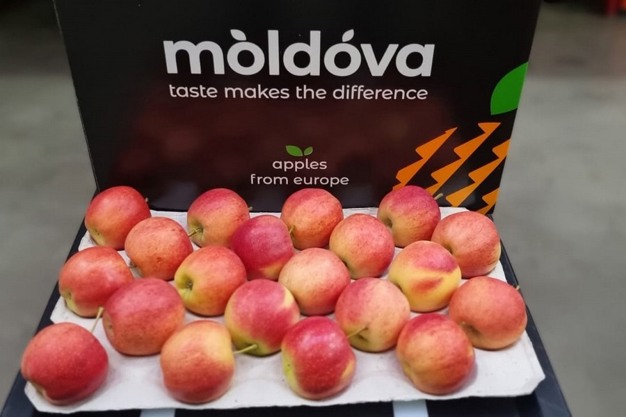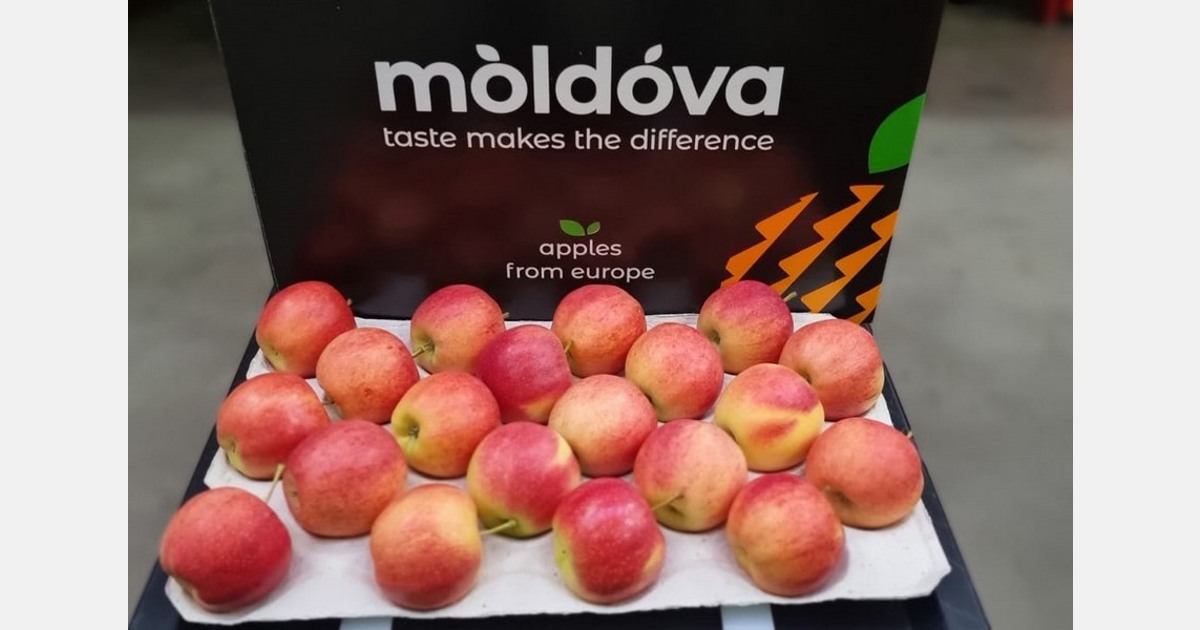After Moldova, a small country nestled between Ukraine and Romania, saw its exports of vegetables and fruit to the important Russian market is continuously decreasing following the outbreak of the war between its large eastern neighbor and Russia, the country and its fruit sector have demonstrated resilience by redirecting export flows to the EU, the Middle East, and several Asian countries.

Growers of particularly stone fruit, pome fruit, and grapes, as well as traders and processors, received strong support during that difficult period—and even before—through programs run by USAID, the United States government agency that supports development projects in various countries around the world. However, this support was halted shortly after President Trump took office, which was a tough blow for Moldova and its economic sectors, as it was for many other countries.
Many innovations and new technologies in Moldova’s fruit and vegetable sector, which originated from the USA, were implemented with USAID’s support, especially new rootstocks, modern equipment, crop protection agents, and products that extend the shelf life and storage of fresh fruit.
Nevertheless, Iurie Fala, CEO of the industry organization Moldova Fruct, insists on expressing his gratitude for the many years of support. “USAID contributed greatly to the development and modernization of Moldova’s fruit sector. Our fruit growers are grateful to the American people, who in difficult times provided not only financial support but also knowledge and expertise. USAID’s assistance was especially crucial in overcoming the impacts of multiple crises caused by the Russian embargoes in 2014 and 2022, COVID, and the Russian invasion of Ukraine. The agency made an essential contribution to the development of a modern fruit sector in Moldova, which is now more resilient and has diversified, stable markets.”
While USAID’s support was of great importance to Moldova, the small and, by European standards, poor country (with an average GDP per capita one-tenth that of the Netherlands) can still—and increasingly—rely on programs from the EU and intergovernmental organizations to realize its economic potential.
Examples include the Solidarity Fund PL (backed by the EU) and the International Fund for Agricultural Development (IFAD – a UN organization), which provide grants to companies investing in fruit processing. The aim is not only to cultivate and export fresh fruit but also to keep processing within the country, as value-added products generally yield higher profitability.
Other concrete examples include the implementation of frost protection equipment for several growers, for which the industry association Moldova Fruct secured government subsidies through the EU-funded Moldova’s Orchard project, or the scheduled opening of a new packing station in Causeni in June 2025, funded by the EU.
Meanwhile, in recent years, the country has also been making strong efforts to become more energy independent—an effort that has taken on new urgency since the beginning of this year, when the gas supply from Russia was cut off. Fruit growers, too, need energy security to prevent interruptions in cold storage for their stone fruit, pome fruit, and grapes. With help from the EU, supply has been secured, but this hasn’t stopped investments in renewable energy sources on Moldovan territory from accelerating. Where five years ago only 3% of energy came from clean sources, that number now reaches 30% under favorable weather conditions.
The challenges facing the country are numerous, and recently, U.S. import tariffs have been added to the list. Although exports of fresh Moldovan fruit to the U.S. are virtually nonexistent, the American market is important for apple juice producers. In a context where the country saw its largest market, Russia, close its doors, and now also faces shifts in global trade flows due to U.S. policy, Moldova is not standing still and is actively seeking new opportunities elsewhere. As of this year, Nepal has become a new export market, as has India for apples. And since April 1, Moldovan fruit can enter EFTA countries tariff-free—these include Switzerland, Norway, Iceland, and Liechtenstein.
“For Moldovan fruit exporters, the trade agreement with EFTA is great news. It creates new opportunities. We expect exporters of stone fruit and apples to enter this new market. However, it will take some time to build commercial relationships and understand consumer preferences. It will happen step by step. But the door is open, and that is excellent news,” says Iurie Fala.
